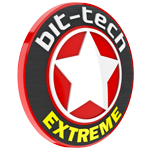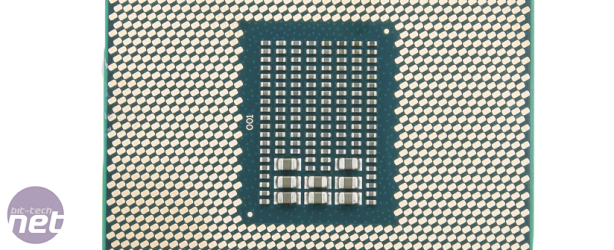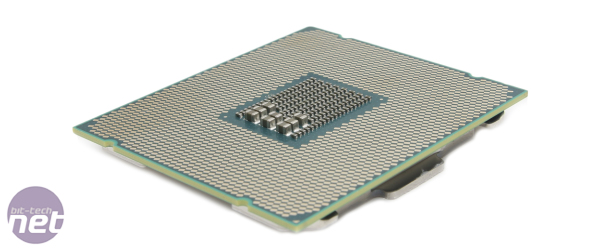
Overclocking
We kept things fairly simple here as we had limited time with our sample, but wanted to at least include some basic overclocking results. As X99 is a mature platform now, we had no issues simply applying the XMP profile and just using voltage and multiplier to find our CPU's maximum speed. This turned out to be 4.4GHz using a vcore of 1.44V, and it was heat rather than instability which was the final nail in the coffin.That's excessive and shouldn't be used as a 24/7 overclock, so the ability to reach 4.6GHz using Turbo Boost Max 3.0 with far less voltage is very useful unless you're gunning for maximum performance from all ten cores. However, it's clear that the extra two cores will likely mean the eight and six-core options are going to stand a better chance of overclocking well, especially as our Core i7-5960X needed far less voltage to get to these levels, using less power when overclocked under load as a result.
Click to enlarge
Performance Analysis
Starting with the memory speeds, there's not much between 2,400MHz and 3,200MHz in terms of price, but it did make a difference in some of our benchmarks, especially Cinebench and Unigine Valley. The improvements were less than 10 percent, usually much lower, so a lot will depend on your budget. If you can stretch another £20-30 then go for 3,200MHz, but otherwise opting for 2,400MHZ or 2,666MHz won't see much of a performance drop.It's tricky to compare like for like as we don't have any other 10-core CPUs in our test data, but one thing is abundantly clear. If you use rendering programs or any other software that regularly makes use of all ten cores, then the Core i7-6950X doesn't just beat the Core i7-5960X, it annihilates it. The differences where all ten cores are loaded for long periods are stark so if this is your kind of workload, the new 10-core flagship will save you a lot of processing time as our Cinebench R15 and Terragen 3 scores clearly demonstrate.
Click to enlarge
Elsewhere, the differences are unsurprisingly small, although the new CPU did have an edge in both PCMark tests at stock speed and in Unigine Valley, but in most cases higher frequencies offer better results here so the much cheaper Core i7-6700K generally reigns supreme. Power consumption was a bit higher with the new CPU under load but with an extra two CPU cores in tow, that's to be expected.
Overclocking yielded some handy performance boosts but compared to the dominance already enjoyed in some tests, they were relatively small and heat and power consumption rose rapidly too. Again, Turbo Boost Max 3.0 could come in handy here to keep things in check, boosting the core speed for lightly-threaded applications but allowing the ten cores to do their job in multi-threaded workloads at stock speeds. Overclocking does yield results but heat and power consumption prevent you from seeing the kind of gains you might see from a quad-core CPU. Sadly, we didn't have time to run any real-world game tests due to CrossFire issues with our regular X99 test system but we hope to revisit this soon.
Conclusion
If you're clued up about the current state of affairs as you leave the realms of quad-core CPUs then you'll no doubt realise that in some ways there are diminishing returns as you add more cores. In fact, some performance benchmarks get slower as the effects from the need to reduce clock speed to compensate for additional power consumption and heat kick in. The Core i7-6950X is a monster when fully unleashed, but it only lashes out in certain situations. Turbo Boost Max 3.0 can potentially help with the fact it has a much lower clock speed than the likes of the Core i7-6700K and reduced overclocking prowess, and we look forward to tinkering with this on more motherboards given more time.However, this CPU essentially serves two purposes and will be worth buying if either of these things applies to you. For starters, if you regularly use software that can make use of all ten cores and 20 threads then this is the desktop CPU for you. Even an eight-core sits a long way behind. The only other reason to consider it is bragging rights. You'd otherwise be much better off with a six or eight-core model if you want a multi-GPU setup or a 6700K if you'll be using one graphics card. In short, the Core i7-6950X is the new desktop PC performance king, but only in specific scenarios.


MSI MPG Velox 100R Chassis Review
October 14 2021 | 15:04










Want to comment? Please log in.